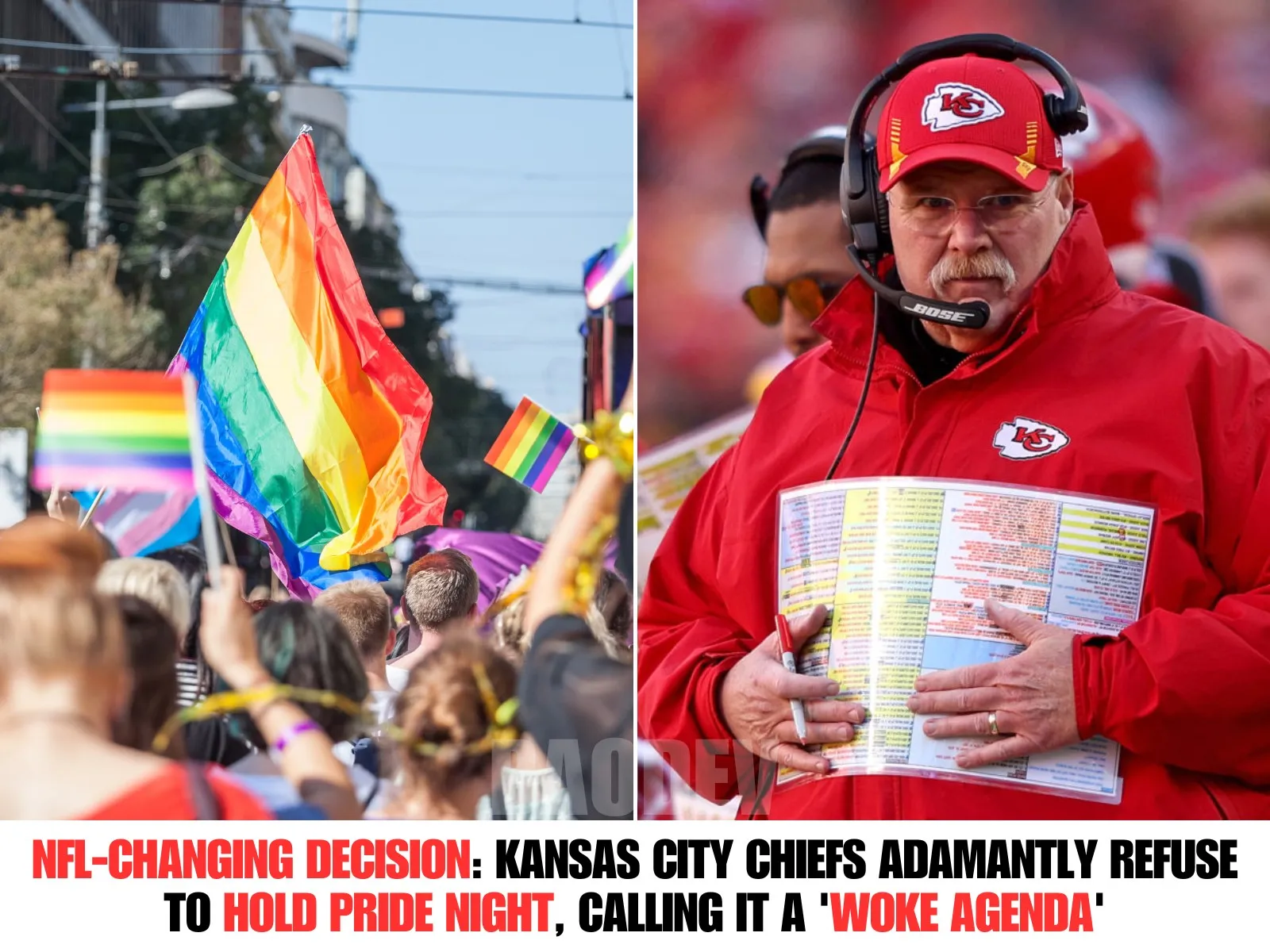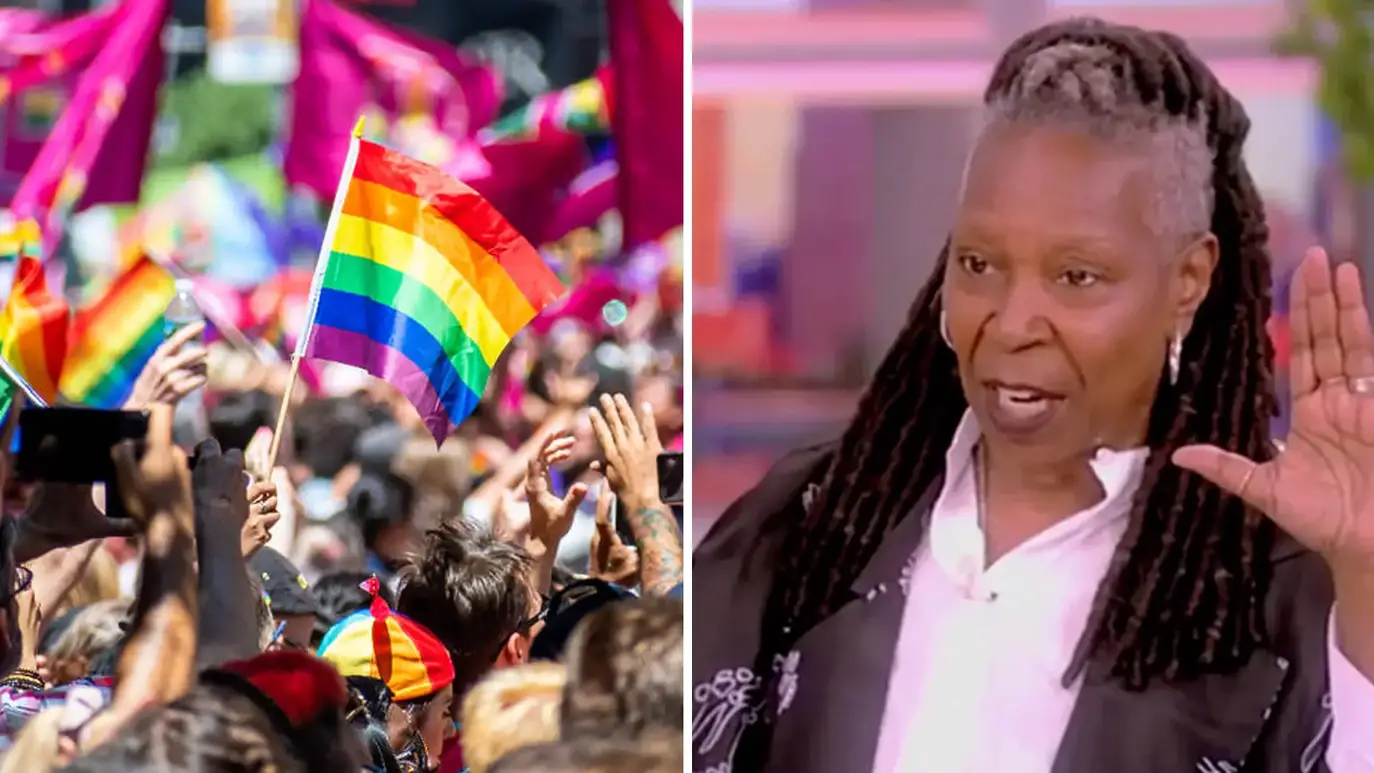In a controversial decision that is rippling through the sports world and beyond, the Kansas City Chiefs have drawn a firm line in the sand, refusing to host a Pride Night event. The team’s outspoken position against what they refer to as a “woke agenda” has ignited a heated debate, dividing fans, analysts, and fellow organizations within the NFL. This move not only challenges the ongoing efforts for inclusivity in professional sports but also signals a broader cultural divide that continues to shape American society.

A Bold Decision Against Pride Night
The decision not to host a Pride Night by one of the NFL’s most successful teams in recent years has shocked many. While numerous teams in the league have embraced Pride events as a way to celebrate the LGBTQ+ community and promote diversity, the Chiefs have taken a starkly different stance. According to team representatives, the decision stems from a belief that such events are part of a larger, politically-driven agenda — one that the organization is unwilling to endorse.
“We are not interested in pushing any kind of woke agenda,” a senior spokesperson for the Chiefs stated. “Our focus is on football and bringing success to the fans. We believe in being inclusive, but we don’t think that involves engaging in politically charged social movements.”
The Backlash from the LGBTQ+ Community
The Chiefs’ refusal to host a Pride Night has understandably garnered sharp criticism from LGBTQ+ advocacy groups and allies. Many see this decision as a step backward in the fight for equality and representation, particularly within a league as visible as the NFL. Pride events in sports have become important symbols of inclusion, offering a platform for LGBTQ+ fans and athletes to feel recognized and supported.
In response to the Chiefs’ decision, GLAAD, an organization that advocates for LGBTQ+ representation in the media, issued a statement expressing disappointment. “This refusal is disheartening for the LGBTQ+ community. We hope the Kansas City Chiefs will reconsider their position and understand the importance of such events for the people they serve.”
The backlash hasn’t been confined to LGBTQ+ organizations, either. Some of the Chiefs’ own fans have taken to social media to voice their frustrations, accusing the team of alienating a portion of their fanbase.
NFL’s Broader Push for Inclusivity
The NFL, like many professional sports leagues, has increasingly adopted a stance of inclusivity over the past decade. From high-profile players coming out as gay, such as Carl Nassib of the Las Vegas Raiders, to the NFL publicly supporting causes like Black Lives Matter, the league has attempted to position itself as a socially responsible organization. Hosting Pride Nights, in particular, has been one of the key ways teams have demonstrated their commitment to inclusivity.
NFL Commissioner Roger Goodell has previously stated that the league is committed to creating an environment where everyone feels welcome, regardless of their race, gender, or sexual orientation. In light of the Chiefs’ decision, it will be interesting to see whether the NFL takes any formal steps in response or leaves teams to make individual decisions regarding Pride events.
Support for the Chiefs’ Decision
While the decision has certainly faced criticism, there are also many who support the Chiefs’ stance. A significant number of fans and commentators have echoed the sentiment that sports should remain apolitical, and that events like Pride Night cross a line into the political sphere. Some believe that by hosting such events, sports organizations are aligning themselves with specific ideologies that not all fans may support.
“I think the Chiefs made the right call,” commented a fan on a popular sports forum. “I’m tired of politics invading every aspect of entertainment. Football should be about football, not pushing social issues down everyone’s throat.”
This viewpoint reflects a broader cultural conversation happening in the United States about the intersection of sports, politics, and social justice. While many see sports as a platform for progress and inclusivity, others argue that it should remain neutral and focused purely on competition.

Economic Impact and Brand Image
The Chiefs’ decision could have financial repercussions as well. Pride Nights are not just symbolic; they also represent significant revenue opportunities through ticket sales, merchandise, and partnerships with LGBTQ+-aligned organizations. By choosing not to host such an event, the Chiefs may be leaving money on the table and risking damage to their brand in the eyes of more progressive fans and potential corporate partners.
However, the team may also be banking on the idea that its core fanbase will appreciate its decision to avoid aligning with contentious social movements. This calculation could pay off, particularly if the team continues to win on the field, as success often has a way of overshadowing controversy.
The Future of Pride in the NFL
The Kansas City Chiefs’ refusal to host Pride Night raises larger questions about the future of Pride events within the NFL and professional sports as a whole. Will other teams follow suit, or will the Chiefs be an outlier in their stance? Given the NFL’s commitment to inclusivity, it seems unlikely that this decision will trigger a broader movement away from Pride events, but it does open the door for more teams to re-evaluate their positions on social issues.
Moreover, this situation may prompt the NFL to take a more formalized approach to how teams handle such events, potentially setting guidelines to ensure consistency across the league. If the Chiefs’ decision sparks a broader cultural debate within the NFL, we could see shifts in how the league handles these kinds of issues in the future.
Conclusion
The Kansas City Chiefs’ refusal to host a Pride Night has sent shockwaves through the NFL and the sports world at large. By calling the event part of a “woke agenda,” the team has positioned itself firmly on one side of a polarizing cultural debate. While some fans and supporters have praised the decision as a stand against politics in sports, others see it as a disappointing step backward for inclusivity and representation.
As the NFL continues to navigate its role in addressing social justice issues, the Chiefs’ decision will undoubtedly be a key moment in shaping the conversation around inclusivity in sports. Whether this move ultimately strengthens the team’s bond with its core fans or alienates a broader audience remains to be seen, but one thing is clear: the Kansas City Chiefs have sparked a discussion that will not be easily forgotten.